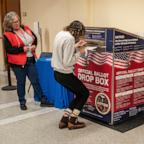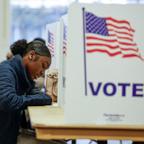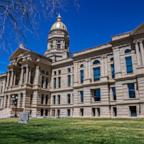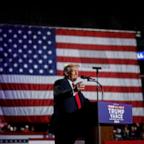Supreme Court allows Virginia to purge 1,600 voters
The U.S. Supreme Court is allowing Virginia to move forward with its purge of 1,600 alleged noncitizens from the voter rolls ahead of Election Day.
The conservative majority's decision -- which was not explained -- reverses rulings by a federal district court judge and a unanimous appeals court panel.
Both had said that Virginia's purge, initiated by an executive order from Republican Gov. Glenn Youngkin, violated federal law prohibiting the "systematic" removal of voters from registration lists within 90-days of an election.
The Supreme Court's decision suggests that the justices acted either under the Purcell principle -- to keep federal courts from intervening in state election administration too close to voting -- or under the belief that Virginia had compellingly argued that the federal law's "quiet period" didn't apply here.
The state advanced the idea that noncitizens -- who were never "eligible" to vote in the first place -- can be removed at any time. It also emphasized in court briefs that anyone erroneously removed as an alleged noncitizen is given two opportunities to correct his or her registration status.
The three liberal justices -- Sonia Sotomayor, Elena Kagan and Ketanji Brown Jackson -- indicated they would have kept the purge on hold.
Noncitizen voters are already prohibited from registering to vote for federal and state elections.
The Virginia voters who are eligible to vote but were purged, however, can still have a chance to vote if they use the state's same-day registration option at the polls.
In a phone interview on Fox News on Wednesday morning, Youngkin called the Supreme Court’s decision “a victory for common sense” and the Constitution, and emphasized that voters who attest they are U.S. citizens should cast provisional ballots if they were removed from the voter rolls.
Damon Hewitt, the president and executive director of the Lawyers' Committee for Civil Rights Under Law which led the efforts in Virginia, blasted the decision.
"None of this activity is random. It's all highly orchestrated, but it's also orchestrated with a purpose," he said in a statement,
-ABC News' Devin Dwyer, Beatrice Peterson and Oren Oppenheim







